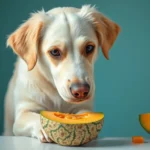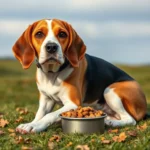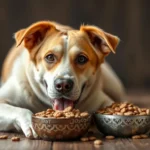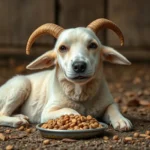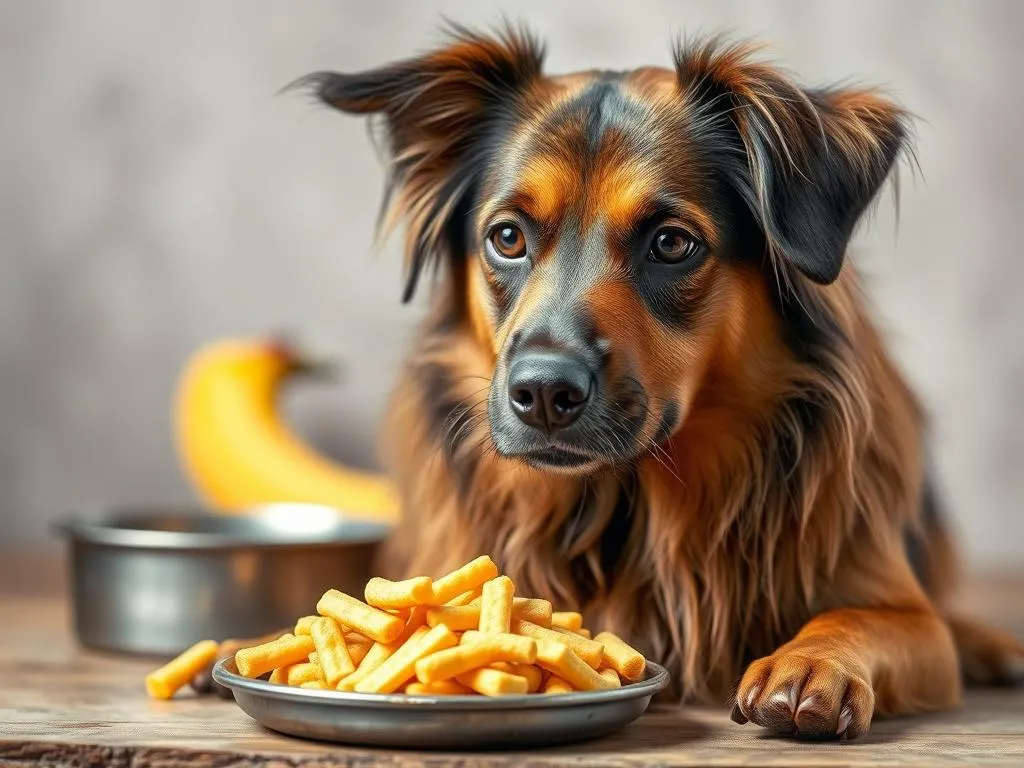
Introduction
A dog’s nutrition plays a crucial role in their overall health and well-being. Just as in humans, a balanced diet is essential for maintaining a healthy coat. The connection between nutrition and coat health is significant; deficiencies in specific nutrients can lead to various skin and coat problems, including hair loss. Understanding how to address these nutritional needs can be the key to keeping your furry friend’s coat shiny and healthy.
Understanding Hair Loss in Dogs
Hair loss in dogs can stem from a variety of causes, including genetic predisposition, environmental factors, and underlying health issues. While some shedding is normal—especially during seasonal changes—excessive hair loss can be a sign of a deeper problem. Nutrition is a vital component of coat condition, and deficiencies in essential nutrients can exacerbate hair loss.
The Importance of Nutrition for Healthy Coats
Nutrients Essential for Coat Health
To promote a healthy coat, certain nutrients are paramount:
-
Proteins: The building blocks of your dog’s body, proteins are essential for skin and coat regeneration. High-quality animal proteins provide the necessary amino acids for optimal coat health.
-
Fatty Acids: Omega-3 and Omega-6 fatty acids play a significant role in maintaining skin barrier function and reducing inflammation. These fats are vital for skin hydration and overall coat luster.
-
Vitamins: Vitamins A, E, and B-complex are crucial for skin health. Vitamin A helps with cell turnover, Vitamin E is an antioxidant that protects skin cells, and B vitamins contribute to overall coat condition.
-
Minerals: Zinc and copper are important for maintaining a healthy coat. Zinc supports skin health, while copper aids in the production of melanin, which contributes to coat color.
How Deficiencies Lead to Hair Loss
Deficiencies in any of the above nutrients can lead to noticeable changes in your dog’s coat. Signs of nutritional deficiencies may include dry, flaky skin, excessive shedding, and dull fur. A poor diet can compromise the skin’s health, making it more susceptible to infections and irritations, which can ultimately result in hair loss.
Identifying Hair Loss Issues in Dogs
Types of Hair Loss
Understanding the type of hair loss your dog is experiencing can help you address the issue effectively:
-
Seasonal Shedding: Regular shedding occurs twice a year and is a natural process. However, if it seems excessive, it could indicate a dietary imbalance.
-
Alopecia: This condition presents as bald patches and can be caused by a variety of factors, including hormonal imbalances and allergies.
-
Itchy Skin and Scratching: If your dog is scratching excessively, it may indicate an allergy or skin condition that could be aggravated by poor nutrition.
When to Consult a Veterinarian
If you notice any abnormal hair loss or changes in your dog’s coat, it’s essential to consult a veterinarian. Signs that indicate a need for professional advice include:
- Sudden, excessive hair loss.
- Skin redness, irritation, or inflammation.
- Persistent itching or discomfort.
A veterinarian can perform diagnostic tests to identify any underlying health issues that may be contributing to your dog’s hair loss.
Key Ingredients to Look for in Dog Foods
When selecting the best dog foods for hair loss, focus on specific ingredients that promote coat health:
High-Quality Proteins
High-quality, easily digestible proteins should be the primary ingredient in your dog’s food. Look for:
- Chicken: A common protein source that is easily digestible and provides essential amino acids.
- Beef: Rich in iron and zinc, both vital for a healthy coat.
- Fish: An excellent source of Omega-3 fatty acids, which are crucial for skin health.
Healthy Fats for Skin and Coat
Healthy fats are essential for maintaining a robust skin barrier and shiny coat. Look for foods that include:
- Fish Oil: Rich in Omega-3 fatty acids, which help reduce inflammation and promote skin health.
- Flaxseed: A plant-based source of Omega-3s that can help nourish your dog’s skin.
Vitamins and Minerals
Ensure your dog’s food includes a balanced profile of vitamins and minerals that support coat health. Specific vitamins to look for include:
- Vitamin A: Essential for skin health and cell regeneration.
- Vitamin E: An antioxidant that protects skin cells.
- Zinc and Copper: Important minerals that support skin and coat integrity.
Top Dog Foods for Hair Loss
Criteria for Selection
When choosing the best dog foods for hair loss, consider the following criteria:
- Quality of Ingredients: Look for whole, recognizable ingredients rather than fillers.
- Nutritional Balance: Ensure the food meets AAFCO standards and provides a balanced diet.
- Brand Reputation and Reviews: Research brands that are well-reviewed by other pet owners and veterinary professionals.
Reviews of Recommended Dog Foods
Here are some top-rated dog food brands that support coat health:
Brand A: Royal Canin
Overview: Royal Canin offers breed-specific formulas that address various health issues, including skin and coat health.
Ingredients: High-quality chicken protein, Omega-3 and Omega-6 fatty acids, vitamins, and minerals.
Benefits for Hair Loss: The formulation is designed to promote a shiny coat and reduce shedding through balanced nutrition.
Brand B: Blue Buffalo
Overview: Blue Buffalo is known for its natural ingredients and holistic approach to pet nutrition.
Ingredients: Real meat as the first ingredient, whole grains, fruits, and vegetables, along with Omega fatty acids.
Benefits for Hair Loss: The inclusion of high-quality proteins and essential fatty acids supports skin health and coat luster.
Brand C: Wellness CORE
Overview: Wellness CORE focuses on high-protein, grain-free diets that cater to dogs with dietary sensitivities.
Ingredients: Deboned turkey, chicken meal, and salmon oil, enriched with vitamins and minerals.
Benefits for Hair Loss: Rich in Omega-3 and Omega-6 fatty acids, this food promotes healthy skin and a shiny coat.
Comparison Table of Top Dog Foods
| Brand | Key Ingredients | Omega Fatty Acids | Price Range |
|---|---|---|---|
| Royal Canin | Chicken, Omega-3, vitamins | High | $50 – $70 |
| Blue Buffalo | Real meat, whole grains, fruits | Moderate | $45 – $65 |
| Wellness CORE | Deboned turkey, chicken meal, salmon oil | High | $55 – $75 |
Homemade Dog Food Options
Benefits of Homemade Diets
Preparing homemade dog food can provide significant advantages:
- Control Over Ingredients: You can choose high-quality, fresh ingredients that suit your dog’s specific needs.
- Tailoring to Specific Needs: Adjust recipes based on your dog’s allergies, preferences, and nutritional deficits.
Recipe Ideas for Hair Loss
Here are a couple of nutritious recipes to consider:
-
Chicken and Vegetable Stew: Combine boiled chicken, carrots, peas, and sweet potatoes. Add a splash of fish oil for healthy fats.
-
Salmon and Quinoa Bowl: Mix cooked salmon with quinoa, spinach, and a drizzle of olive oil. This meal is rich in Omega-3s and proteins.
Supplements for Hair Loss
When to Consider Supplements
While a balanced diet is essential, situations may arise where dog food alone may not suffice. If your dog exhibits signs of hair loss despite a good diet, consider supplementation.
Types of Beneficial Supplements
- Fish Oil and Omega-3 Supplements: These can help improve skin health and reduce inflammation.
- Multivitamins Specifically for Dogs: A good multivitamin can fill in any nutritional gaps in your dog’s diet.
Consulting a Veterinarian Before Supplementation
Always consult with a veterinarian before introducing supplements to your dog’s diet. They can provide personalized advice based on your dog’s health needs.
Additional Tips for Maintaining a Healthy Coat
Regular Grooming Practices
Regular grooming is essential for maintaining a healthy coat. Brushing helps distribute natural oils, removes dirt, and can prevent matting. Additionally, bathing your dog with a gentle, moisturizing shampoo can keep their skin and coat healthy.
Hydration and Its Impact on Coat Health
Adequate water intake is vital for overall health, including coat condition. Ensure your dog has access to fresh water at all times. Proper hydration supports skin elasticity and hydration.
Environmental Factors
Managing environmental factors can also contribute to coat health. Minimize exposure to allergens and irritants by keeping your dog’s living area clean and using air purifiers when necessary.
Conclusion
In conclusion, the importance of nutrition in preventing hair loss cannot be overstated. By selecting high-quality dog foods that are rich in essential nutrients, you can help ensure your dog maintains a healthy, shiny coat. Remember to consult with your veterinarian to personalize care for your dog, especially if you notice any concerning signs of hair loss. Keeping your furry friend well-nourished is not only beneficial for their coat but also for their overall health and happiness.



